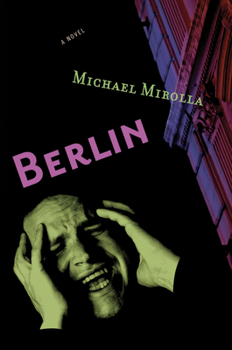Berlin
"As wickedly funny and hilariously angry as vintage Harlan Ellison."--Spider Robinson, author of Callahan's Crosstime Saloon
"A delightful romp through the metaphysical muck."--Halifax Daily News
"A funny, tragic glimpse into the territory of the absurd, somewhere between Kafka and Vonnegut."--Calgary Herald
"Weird and wonderful . . . imaginative, unsettling, devilishly layered. Mirolla delights in verbal and situational sleight-of-hand, exposing a disorienting world of labyrinthine dreams and menacing recurrent images. Mirolla likes the macabre and grotesque, absurdities and stylistic play. He mercilessly exposes our alienation and primal fears, forcing us to face the awful possibility that we are no more than the product of our own devising."--Event Magazine
The Berlin Wall falls. A continent away, a mysterious mental patient awakes from a two-year stupor. His obsession with Berlin is unexplained. His escape from the hospital launches a surreal adventure in which past blends with future, and death is used to change the fabric of the world in a freakish experiment on transcendental philosophy.
Like Franz Kafka or Italo Calvino in their blending of the real and surreal, or like a psychedelic drug trip, this story brings the reader into West Berlin's seamy underlife--the omnipresent wall, transvestite bars, and sadomasochism. It is a secret world where a concentration-camp survivor sells gas stoves, a world of philosophical intelligentsia, adultery, and murder.
Frenetic, kaleidoscopic, horrible, brilliant.
Michael Mirolla, author of novels, short stories, poetry, and plays, lives in Toronto, Canada. His writing has won many awards and has appeared in numerous journals in Canada, the United States, Britain, and Italy.





